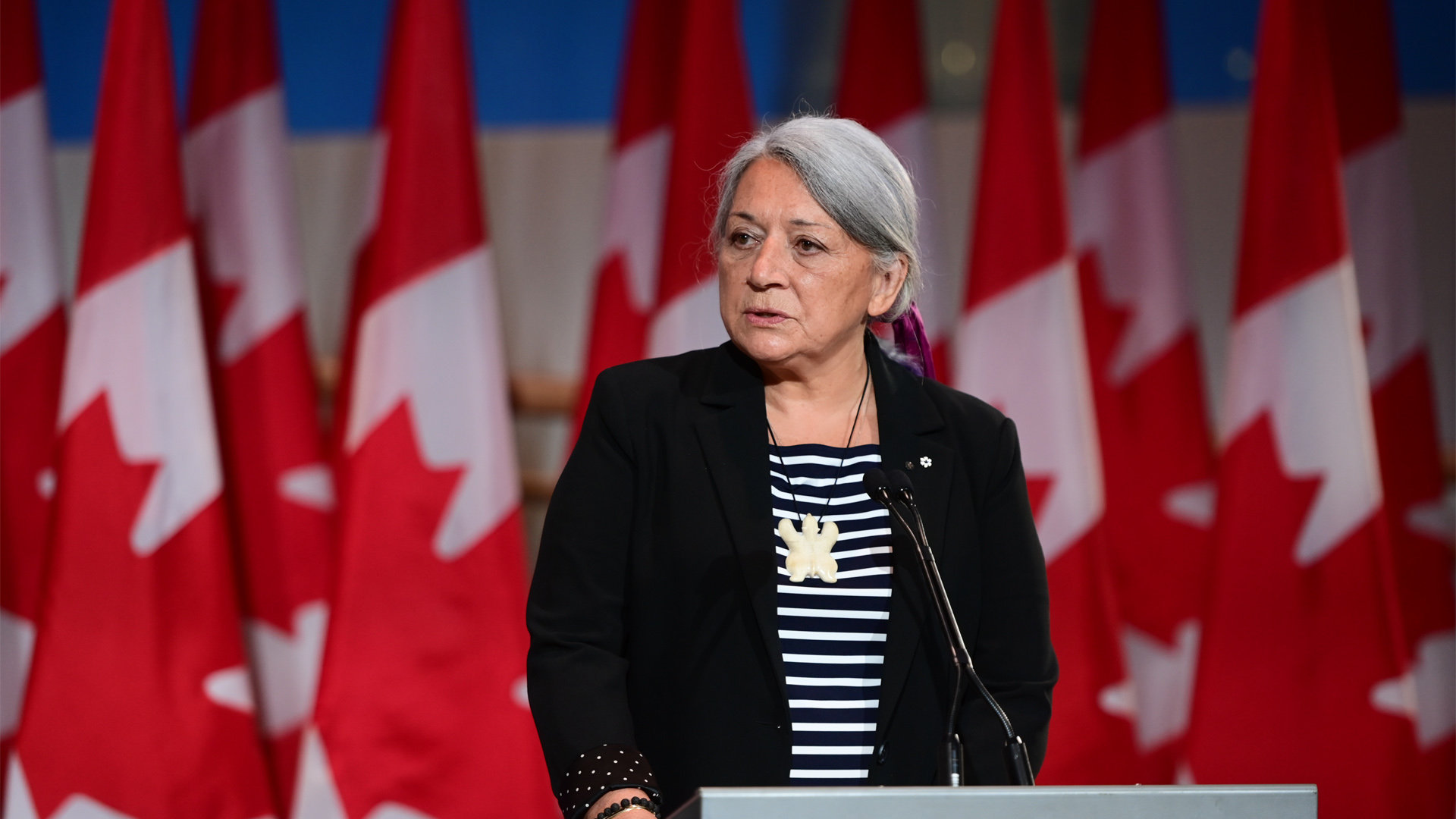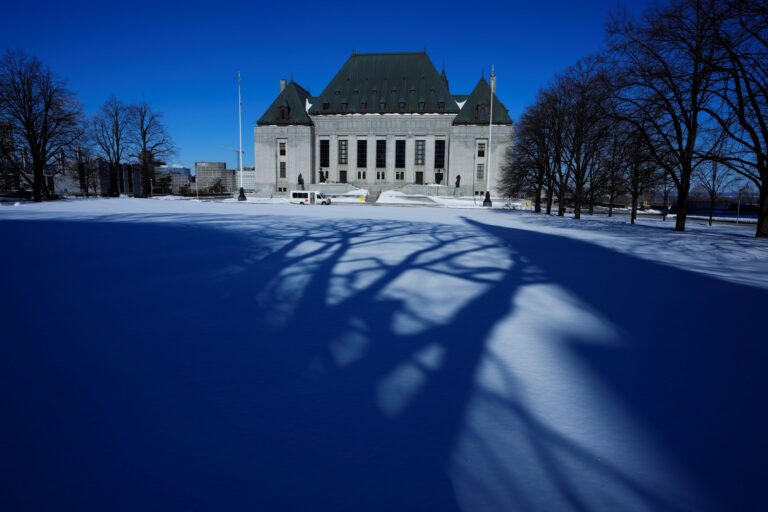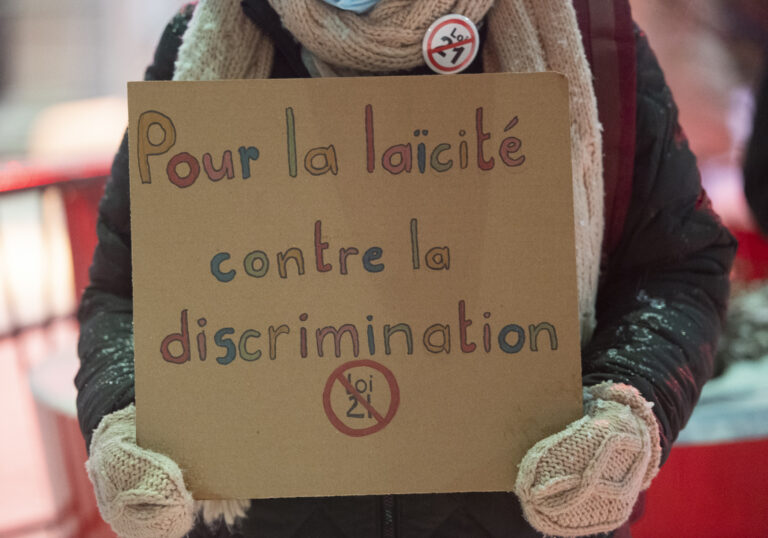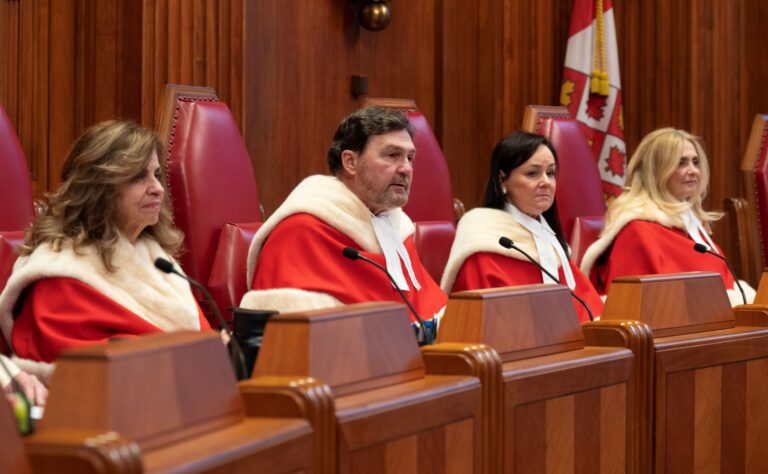(This article has been translated into French.)
It does not follow from the appointment of Mary Simon, who is bilingual in English and Inuktitut, as the next Governor General of Canada that the prime minister can, should (or must) appoint Supreme Court justices who do not have a working command of both official languages. Let us not confuse apples and oranges, or issues of representation with issues of equality.
Canadians have a constitutional right to be heard in the official language of their choice by federally constituted tribunals without the aid of an interpreter. The fact that the Supreme Court is an exception to that is unconstitutional. I know: MacDonald v. City of Montreal and Société des Acadiens v. Association of Parents – old Supreme Court precedents – suggest that may not be the case, but the principles that underpin those decisions were overturned more than 20 years ago. In contrast, there is no constitutional right to be heard in both official languages by the Governor General, whatever that may mean. The Supreme Court interprets and applies federal laws, which are drafted and adopted in English and French. Both versions have equal force and status. A jurist who can understand only half of the legislator’s intent is not qualified to sit on the Supreme Court.
Bilingual law clerks are not the answer. I was a Supreme Court law clerk. It would be downright dangerous to let us, fresh out of law school, compensate for the linguistic shortcomings of our bosses. Only the judges must decide. Thankfully, only the judges do decide.
Interpretation and translation are not the answer, either. Not because interpreters and translators are not highly trained professionals. They are. It is a matter of equality, and the constitutional guarantee is one of equality. All barristers worry that the subtleties of their oral arguments are not received by the bench.
French-speaking barristers have the additional worry that those subtleties are also lost in translation. As for written submissions, they are simply not translated for the benefit of English-only judges. Those judges rely on their clerks to understand written submissions in French, which, again, is not a viable solution.
You can’t say that the effects of appointing an English-only justice are diluted because they are one of nine judges on the high court. What if the English-only justice is the court’s sole expert in criminal law – as is the case right now? It may be crucial for a defence attorney, or the Crown, to appeal to that expertise for their case to be decided correctly. French-speaking lawyers do not have unfettered access to that expertise if they must plead with the aid of an interpreter.
The appointment of governors general and Supreme Court justices who do not master French, or who are not Indigenous, creates issues of representation and issues of equality, but not in the same way.
The fact that there is not an Indigenous Supreme Court justice is an issue of representation. The Supreme Court should collectively represent all Canadians and include justices who represent Indigenous peoples and Canadians of colour. The requirement that they be bilingual is not an eternal barrier to representation – on the contrary, as the recent appointment of Justice Mahmud Jamal as the first person of colour to the Supreme Court clearly shows.
The appointment of an English-only Supreme Court justice is not a problem of representation if there are a substantial number of other justices who are bilingual. Rather, the problem is one of equality.
But here is the difference between representation and equality of official languages: There is no constitutional right to the representation of Canada’s diversity on the Supreme Court. There is, however, a constitutional imperative that both languages be equal before the court. The appointment of an English-only justice to the Supreme Court creates serious practical issues that directly undermine the equality of both official languages.
The appointment of a Governor General who does not master French is also an issue of representation. Ideally, the Governor General should represent all Canadians, but finding that unicorn time-after-time will be impossible.
It is more practical for the office of the Governor General to be representative from an historical standpoint. From that perspective, the appointment of an Indigenous Governor General is long past due, whether she speaks both French and English or not. As long as the Governor General acknowledges the status of French through her personal efforts to learn the language and speak it in an official capacity, the issue of representation can be mitigated to a degree.
The appointment of a Governor General who does not master French is arguably an issue of official language equality as well, but one that does not have same practical consequences as the appointment of an English-only Supreme Court justice.
Let’s put it this way: in a world where none of us can have everything, I am happy Justice Jamal was appointed to the Supreme Court and Mary Simon as Governor General rather than the reverse.












